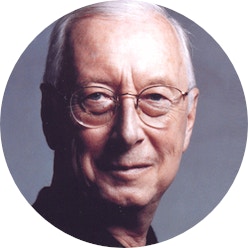
William Christie
December 19, 1944 - Buffalo (United States)
© DR
About
William Christie, harpsichordist, conductor, musicologist and teacher, is the inspiration behind one of the most exciting musical adventures of the last twenty-five years. His pioneering work has led to a renewed appreciation of Baroque music in France, notably of 17th- and 18th-century French repertoire, which he has introduced to a very wide audience.
Born in Buffalo (New York State), William Christie studied at Harvard and Yale Universities, and has lived in France since 1971. The major turning point in his career came in 1979 when he founded Les Arts Florissants. As Director of this vocal and instrumental ensemble, Christie soon made his mark as a musician and man of the theatre, in both the concert hall and the opera house, with new interpretations of largely neglected or forgotten repertoire. Major public recognition came in 1987 with the production of Atys by Lully at the Opéra Comique in Paris, which then went on to tour internationally with much success.
William Christie's enthusiasm for the French Baroque has never diminished. From Charpentier to Rameau, through Couperin, Mondonville, Campra or Montéclair, he is an acknowledged master of tragédie-lyrique as well as opéra-ballet, and is equally at home with French motets as with music of the court. His affection for French music does not prevent him from exploring other European repertoire, however, and he has given many acclaimed performances of works by Italian composers such as Monteverdi, Rossi and Scarlatti. He undertakes Purcell and Handel with as much pleasure as Mozart and Haydn.
He has made over 70 recordings, and since 2002 has recorded exclusively for Virgin Classics, with recordings of motets by Campra and Couperin, violin sonatas by Handel, a live recording of Serse with Anne-Sofie von Otter, the release on DVD of Monteverdi's Ritorno d'Ulisse in patria as performed in Aix-en-Provence, Charpentier's Te Deum and Judicium Salomonis, followed, more recently by the release Purcell's Divine Hymns and Haydn's Creation.
Much in demand as a guest conductor, William Christie receives regular invitations from prestigious opera festivals such as Glyndebourne, where he has conducted the Orchestra of the Age of Enlightenment in productions of Theodora and Rodelinda by Handel (the latter was revived at the Théâtre du Châtelet in January 2002). Other guest appearances include Zurich Opera, where he has conducted Iphigénie en Tauride by Gluck, Les Indes galantes by Rameau, and Radamisto and Orlando by Handel, and the Opéra national de Lyon where, following Così fan tutte in 2005, he will conduct The Marriage of Figaro in June 2007. Since 2002, he has appeared regularly as a guest conductor with the Berlin Philharmonic.
William Christie is equally committed to the training and professional development of young artists, and he has nurtured several generations of singers and instrumentalists over the last twenty-five years. Indeed, many of the music directors of today's Baroque ensembles began their careers with Les Arts Florissants. Between 1982 and 1995, Christie was a Professor at the Paris Conservatoire, with responsibility for the early music class. He is often invited to give masterclasses, or to lead academies such as those at Aix-en-Provence and Ambronay.
Wishing to develop further his work as a teacher, he created an academy for young singers in Caen, called Le Jardin des Voix, whose first two sessions, in 2002 and 2005, generated a huge amount of interest in France and elsewhere in Europe as well as in the United States.
William Christie acquired French nationality in 1995. He is an Officier dans l'Ordre de la Légion d'Honneur as well as Officier dans l'Ordre des Arts et des Lettres.

